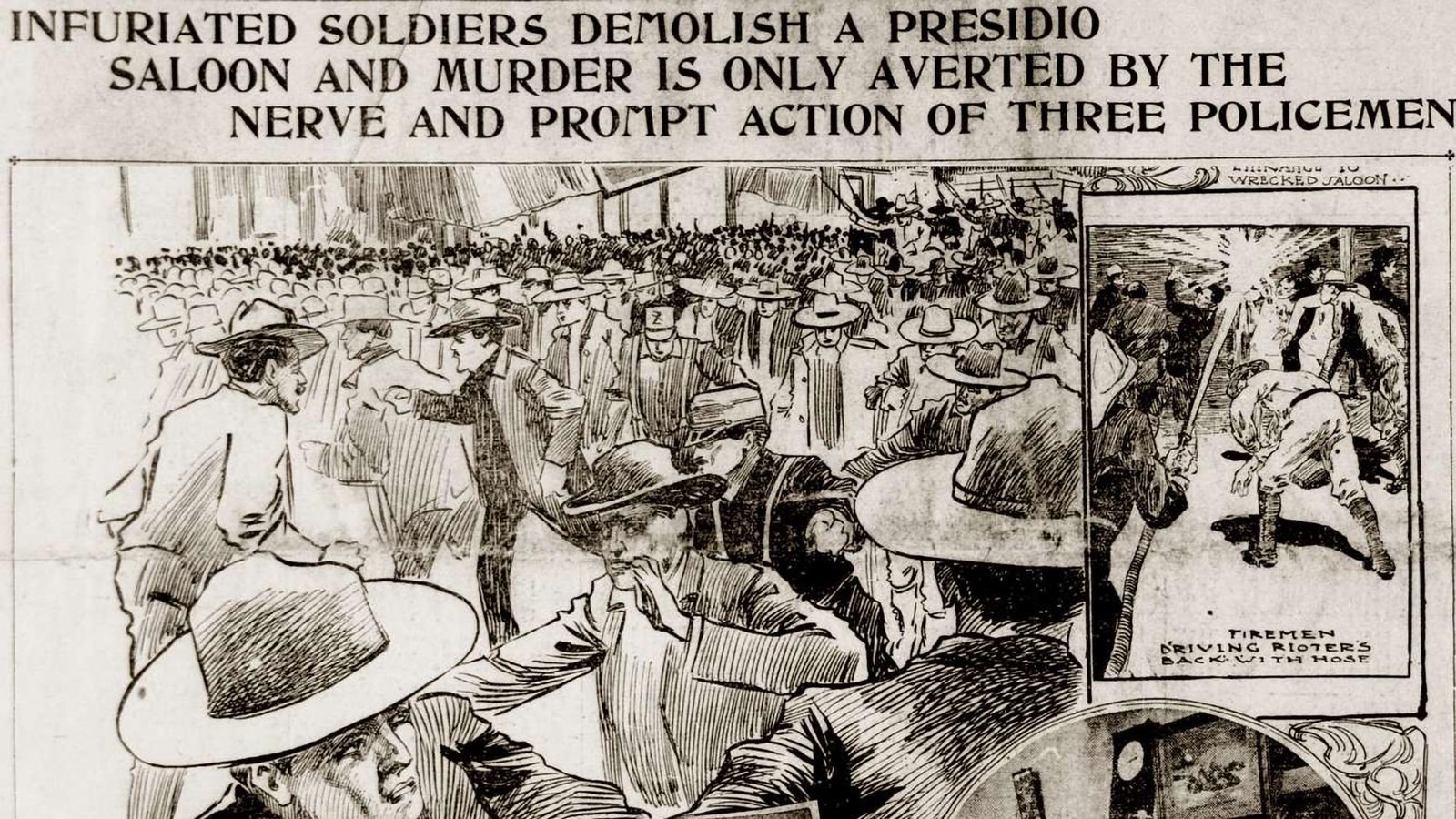Last updated: March 2, 2021
Place
Soldiers Return: Philippines War Tour

In May of 1904, Colonel Nobel wrote a letter in explaining why the East Cantonment had such a high desertion rate.
The present recruits are of very low quality. Recruiting officers concern themselves more with quantity than quality. The result is a class of men who are of inferior character, many being mere nomads. Also contributing to the desertions are the poor accommodations and deplorable surroundings. The men can see the Artillery and the 9th Cavalry troops over at the Presidio's main post with their good barracks, reading room, gymnasium, and so forth. The contrast with the cantonment's humble barracks causes discontent. Also, the numerous dives and saloons just outside the cantonment provide a source of evil. The veterans of foreign service expect better when they came home, but when they first see the post they are heartsick. While much has been done to improve matters much remains to be done.
As Colonel Noble noted, the poor quality of the recruits led to less than savory interactions between the soldiers and citizens and proprietors of San Francisco. Papers reported on both the trouble caused by drunk soldiers, and the gouging of soldiers by local grafters. In August 1900 the San Francisco Call reported:
Last night additional police officers were detailed to the Barbary Coast to prevent the soldiers from repeating Monday night's outrages. The danger to citizens through soldiers being allowed to carry their revolvers while away from camp has been exemplified on more than one occasion, notably the murder in the Spreckles Market by Private Rosser of the Tennessee Regiment. Another case, which fortunately did not have a tragic ending, occurred early yesterday morning. Several colored soldiers were drinking in the saloon at Pacific Street when a row started and one of the soldiers pulled a revolver out of his pocket and fired a shot at a white man. The bullet fortunately missed its mark. The soldiers fled from the saloon and Sergeant Christiansen was unable to get any clue to the identity of the would-be murderer.
The most notorious of the bar brawls and riots by Presidio soldiers occurred on Christmas night 1901. The San Francisco Call reported on December 26, 1901:
Not much of peace on earth, nor good will toward men, was displayed yesterday afternoon by more than 1000 howling soldiers in front of Dave Tarpey's saloon, on Baker Street, near Greenwich, just outside the Presidio grounds. They were men from several regiments, cursing, yelling, demanding blood and mixing in a general free-for-all. The riot was finally quelled by the police and several detachments of troops from the Presidio. Revolvers, clubs, stones and mud were brought into play during the riot, and for their participation fifty-nine of Uncle Sam's warriors are under arrest in the reservation and fifteen of them are lodged in the North End police station. The wonder of the riot is that no one was seriously injured. Dave Tarpey's saloon received a shake-up that brought back recollections of the old Tennessee days.
Soldiers being discharged from the army often encountered men scheming to fleece them of their money near the Presidio Gates. In April 1901, the San Francisco Call reported:
Twenty-seventh Infantry soldiers mustering out at the Presidio yesterday had an opportunity to "get even" with certain neighborhood storekeepers and others of the human vampire species. Early in the morning the grafters began to gather around the entrance to the Presidio. Their number kept increasing until, at 12 o'clock, there were so many of those bipeds who make an easy living off the unsophisticated soldiers, that it became necessary to adopt drastic measures to protect the soldiers. Colonel Cummins had the camp surrounded by a mounted guard with orders to keep all persons out who could give no valid reason for their presence. The result being that all the men who had been hanging around the camps were driven from the reservation. At the entrance to the Presidio, the numerous individuals who were under the impression that a soldier is easy game fell into the hands of police officers, who kept them on the move, resulting in a freedom from the wily schemers not having been enjoyed for some time.
